 Sign in
Sign in
TV & Film
Karina Longworth
You Must Remember This is a storytelling podcast exploring the secret and/or forgotten histories of Hollywood’s first century. It’s the brainchild and passion project of Karina Longworth (founder of Cinematical.com, former film critic for LA Weekly), who writes, narrates, records and edits each episode. It is a heavily-researched work of creative nonfiction: navigating through conflicting reports, mythology, and institutionalized spin, Karina tries to sort out what really happened behind the films, stars and scandals of the 20th century.
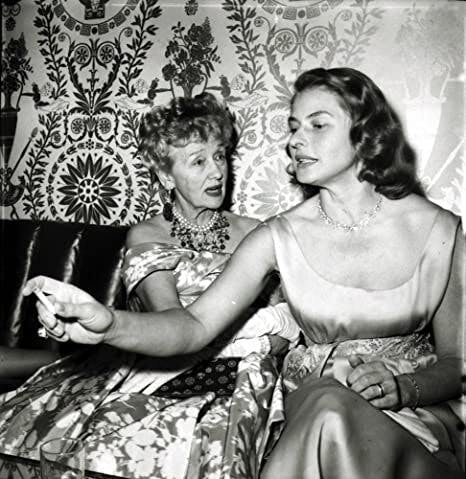
Gossip Girls: Louella Parsons And Hedda Hopper (Sex and Shame in the 1950s, Episode 7)
The 1950s were a decade of massive contradictions in terms of national and cultural attitudes towards sex. As Louella Parsons struggled to keep up with these rapid changes -- and to compete with her bolder, bitchier rival Hedda Hopper -- she reflected and steered the sexual panic through her coverage of two stories: Rita Hayworth’s marriage to a Muslim prince, and Ingrid Bergman’s “illegitimate” pregnancy. Plus: the emergence of Sheilah Graham, the international woman of mystery who would eventually beat the gossip girls at their own game.
To learn more about listener data and our privacy practices visit: https://www.audacyinc.com/privacy-policy
Learn more about your ad choices. Visit https://podcastchoices.com/adchoices
54:1315/06/2021
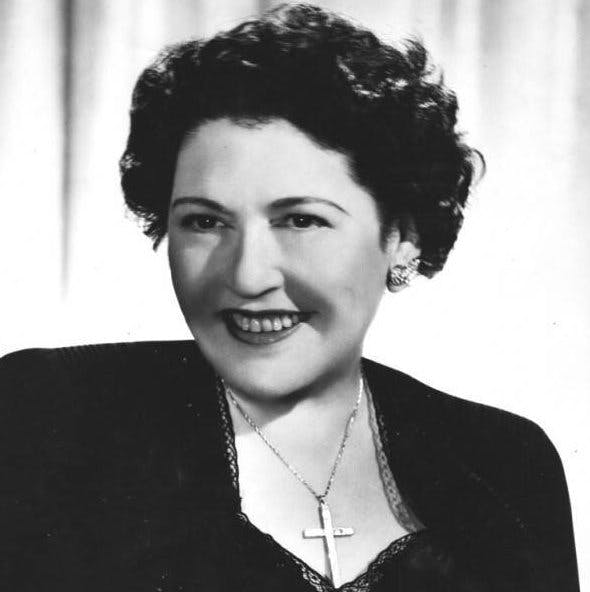
Gossip Girls: Louella Parsons And Hedda Hopper (Witch Hunt, Episode 6)
During an era in which Hollywood and Washington are shakily aligned in the witch hunting of actual and reputed socialists, Louella struggles to maintain her position as cheerleader for the status quo, while Hedda grabs a torch and tries to burn it all down, using celebrity gossip to further the racist, xenophobic interests of the FBI. There’s also a new competitor in town, who at once subversively spoke to and for Hollywood’s gay community, while also deflecting attention from his own sexuality by attacking others.
To learn more about listener data and our privacy practices visit: https://www.audacyinc.com/privacy-policy
Learn more about your ad choices. Visit https://podcastchoices.com/adchoices
50:0508/06/2021

Gossip Girls: Louella Parsons And Hedda Hopper (The Queer, Female Film Producer You’ve Never Heard Of, Episode 5)
Louella’s daughter, Harriet Parsons, became a groundbreaking female film producer at a moment in history in which virtually all mainstream filmmakers were male. She was also a lesbian, at a time when being openly gay was unacceptable in Hollywood -- and, in much of America, illegal.
To learn more about listener data and our privacy practices visit: https://www.audacyinc.com/privacy-policy
Learn more about your ad choices. Visit https://podcastchoices.com/adchoices
50:1901/06/2021
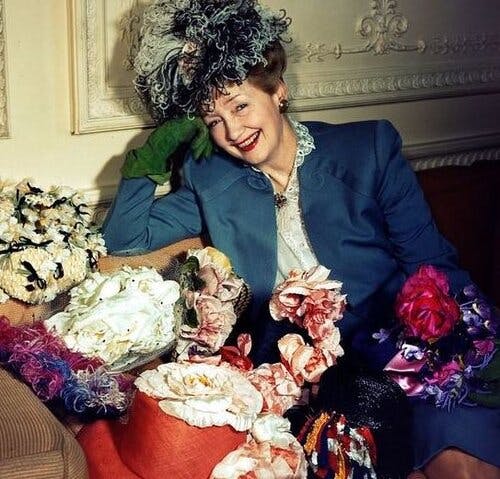
Gossip Girls: Louella Parsons And Hedda Hopper (War! Episode 4)
World War II begins to reveal the gulf between Louella’s conservative but essentially business-minded politics, and Hedda Hopper’s virulent right-wing fervor. These differences — and the glee with which Hopper would destroy lives to shore up political power and further her ideology — come through loud and clear in the stories of two controversies: the casting of Gone with the Wind, and the paternity trial of Charlie Chaplin. Meanwhile, Louella shows her devotion to Hearst by using her power to cripple Citizen Kane.
To learn more about listener data and our privacy practices visit: https://www.audacyinc.com/privacy-policy
Learn more about your ad choices. Visit https://podcastchoices.com/adchoices
53:5725/05/2021
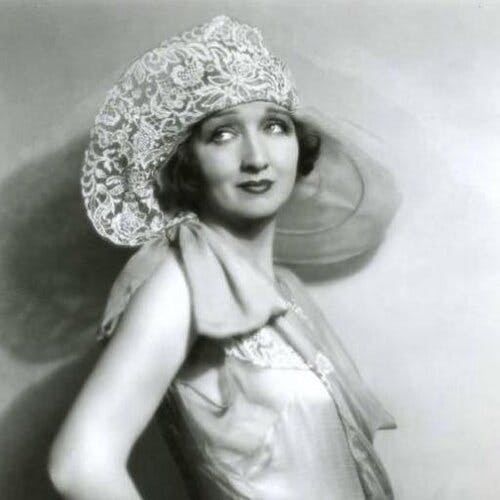
Gossip Girls: Louella Parsons And Hedda Hopper (The Feud, Episode 3)
In 1938, washed-up actress Hedda Hopper is installed as a movie gossip columnist with the express purpose of puncturing the success of Louella and Hearst. But Hedda quickly establishes a voice of her own, revolutionary for its insistence on making movie gossip political. Once friends, Louella and Hedda become bitter rivals, egged on in their feud by a third party who sees Hedda as an ally in right-wing conservatism.
To learn more about listener data and our privacy practices visit: https://www.audacyinc.com/privacy-policy
Learn more about your ad choices. Visit https://podcastchoices.com/adchoices
55:0518/05/2021

Gossip Girls: Louella Parsons And Hedda Hopper (The First Lady, Episode 2)
In 1923, Louella Parsons signed a contract with William Randolph Hearst for nationwide syndication of the first major Hollywood gossip column. Parsons quickly built a brand based on protecting (and whitewashing) Hollywood’s interests, as well as Hearst’s, relentlessly promoting — and spying on — Hearst’s mistress, Marion Davies.
To learn more about listener data and our privacy practices visit: https://www.audacyinc.com/privacy-policy
Learn more about your ad choices. Visit https://podcastchoices.com/adchoices
58:0111/05/2021
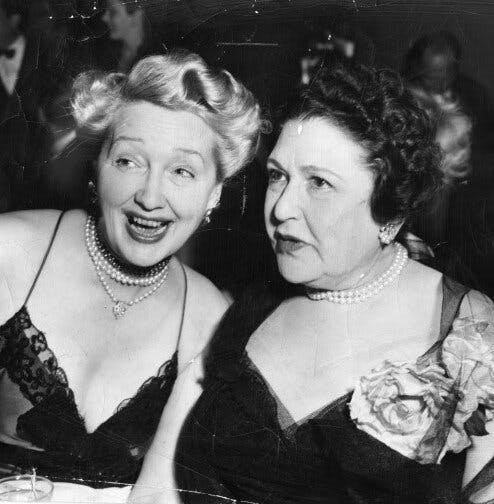
Gossip Girls: Louella Parsons and Hedda Hopper (Small Town Girl, Episode 1)
Both Louella Parsons and Hedda Hopper worked for papers created by charismatic barons whose publications were nakedly corrupt, totally biased -- and absolutely mainstream. Once we get a feel for this media climate, we’ll trace Louella’s early years of struggle and reinvention on the road to her pioneering bylines, and, finally, her role in canonizing The Birth of a Nation -- the most viciously racist Hollywood blockbuster of all time.
To learn more about listener data and our privacy practices visit: https://www.audacyinc.com/privacy-policy
Learn more about your ad choices. Visit https://podcastchoices.com/adchoices
59:2004/05/2021

"Competition is idiots." Sneak Preview of David Fincher's MANK
You Must Remember This presents an exclusive first listen of the audio trailer for Mank, a David Fincher film about the screenwriter of Citizen Kane, coming to Netflix on December 4.
To learn more about listener data and our privacy practices visit: https://www.audacyinc.com/privacy-policy
Learn more about your ad choices. Visit https://podcastchoices.com/adchoices
06:1619/10/2020
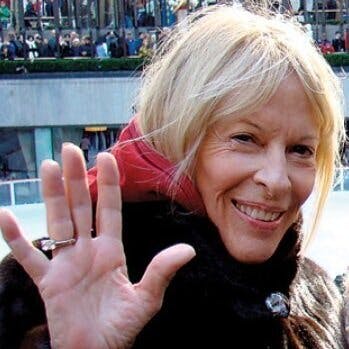
How Did It End? (Polly Platt, The Invisible Woman, Episode 10)
Polly Platt’s unfinished memoir ends abruptly in 1995. What were the remaining 16 years of her life like? Using interviews with those who knew her, we’ll explore how her career in Hollywood came to an end, and the tragic circumstances of her death.
To learn more about listener data and our privacy practices visit: https://www.audacyinc.com/privacy-policy
Learn more about your ad choices. Visit https://podcastchoices.com/adchoices
01:13:4328/07/2020

Bottle Rocket, I'll Do Anything and Polly Platt in '90s Hollywood (Polly Platt, The Invisible Woman, Episode 9)
Polly Platt's collaboration with James L. Brooks hits choppy waters with I’ll Do Anything, which at one point was a musical with songs by Prince, but became one of the most notoriously misbegotten productions of the 1990s. Polly recaptures her indie roots by shepherding the directorial debut of Wes Anderson.
To learn more about listener data and our privacy practices visit: https://www.audacyinc.com/privacy-policy
Learn more about your ad choices. Visit https://podcastchoices.com/adchoices
01:11:1221/07/2020
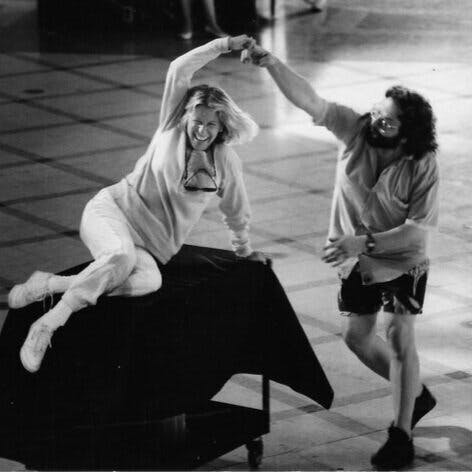
Women of the 80’s (Polly Platt, The Invisible Woman, Episode 8)
In the mid-to-late 80s, Polly Platt worked on a number of films that defined and reflected that decade’s ideas about female power. With an Oscar nomination under her belt, Polly starts trying in earnest to direct. She ends her career as a production designer with The Witches of Eastwick, a star-studded special-effects extravaganza. Inspired by Polly, Brooks creates the character played by Holly Hunter in Broadcast News, infusing the film with Polly’s single-minded professional determination. Riding high on having guided Brooks through two consecutive, blockbuster Oscar nominees, Polly becomes a production executive at Brooks's Gracie Films, where she produces Cameron Crowe’s Say Anything…
To learn more about listener data and our privacy practices visit: https://www.audacyinc.com/privacy-policy
Learn more about your ad choices. Visit https://podcastchoices.com/adchoices
01:13:2814/07/2020

Terms of Endearment (Polly Platt, The Invisible Woman, Episode 7)
Polly’s third marriage falls apart, and she enters more than one destructive affair. During these tumultuous times, Polly establishes a new collaboration with a male writer-director, James L. Brooks, and together the two turn another Larry McMurtry novel into a classic film: Terms of Endearment. Once again, while working on this film about a combative mother-daughter relationship, Polly finds that art and life are intertwined. Polly’s own story starts showing up in other people’s movies, including Irreconcilable Differences -- starring Ryan O’Neal as a version of Peter Bogdanovich.
To learn more about listener data and our privacy practices visit: https://www.audacyinc.com/privacy-policy
Learn more about your ad choices. Visit https://podcastchoices.com/adchoices
58:0307/07/2020
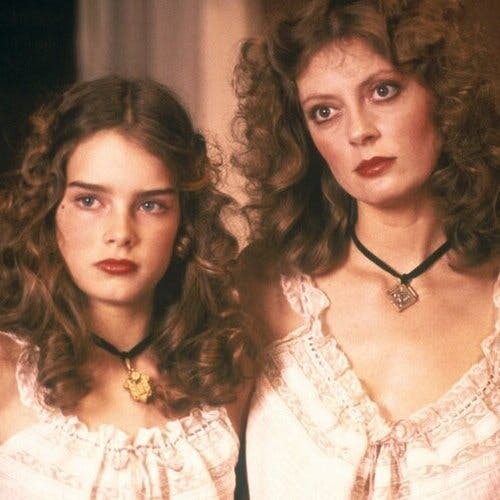
Pretty Baby and a Playmate Murder (Polly Platt, The Invisible Woman, Episode 6)
In an attempt to save her family, Polly transitions to screenwriting and producing, basing the prostitution drama Pretty Baby, starring a pre-teen Brooke Shields, on her own daughter. Polly finds herself increasingly overcome by alcoholism, while dealing with Shields’s own alcoholic mother. Polly’s already-difficult relationship with her two daughters is made much more complicated by the murder of Peter’s girlfriend, Dorothy Stratten, and Bogdanovich’s subsequent emotional collapse.
To learn more about listener data and our privacy practices visit: https://www.audacyinc.com/privacy-policy
Learn more about your ad choices. Visit https://podcastchoices.com/adchoices
01:01:2230/06/2020
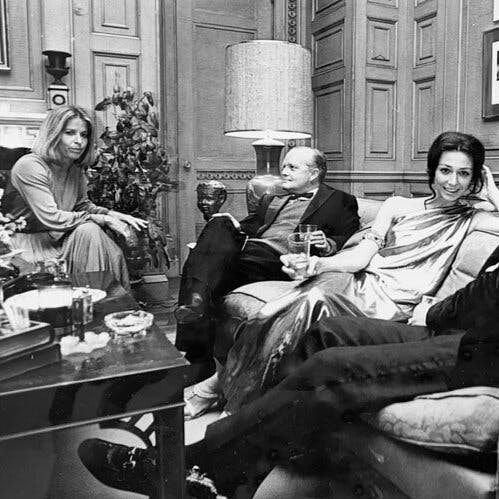
A Star is Born (Polly Platt, The Invisible Woman, Episode 5)
When Polly begins her own on-set affair, the double standard of what men can get away with in Hollywood versus what was expected for women would push her to a breaking point. With collaborating with her ex-husband no longer an option, Platt starts attempting to rebuild her career, designing classics such as A Star is Born and Bad News Bears, while also navigating predatory men in power in post-sexual revolution Hollywood.
To learn more about listener data and our privacy practices visit: https://www.audacyinc.com/privacy-policy
Learn more about your ad choices. Visit https://podcastchoices.com/adchoices
01:00:5823/06/2020
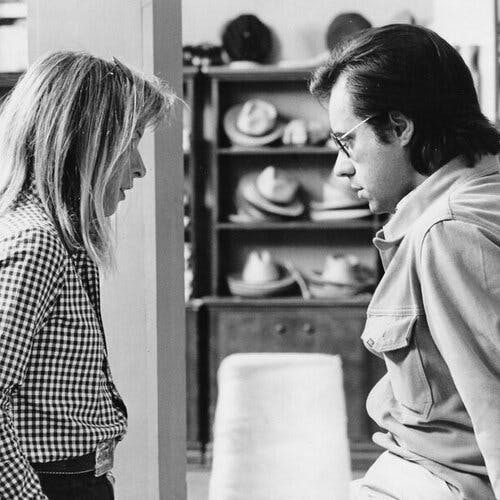
Orson Welles, What’s Up Doc, Paper Moon (Polly Platt, The Invisible Woman, Episode 4)
In the aftermath of The Last Picture Show — and the collapse of her second marriage — Polly finds an unlikely ally, and a new job, in Orson Welles. Anxious to build on her career momentum (and become the first female film art director accepted into her union), Polly agrees to work on Peter’s next two films, What’s Up Doc and Paper Moon – two massive hits which make Peter one of the most famous directors of the decade.
To learn more about listener data and our privacy practices visit: https://www.audacyinc.com/privacy-policy
Learn more about your ad choices. Visit https://podcastchoices.com/adchoices
01:06:4616/06/2020
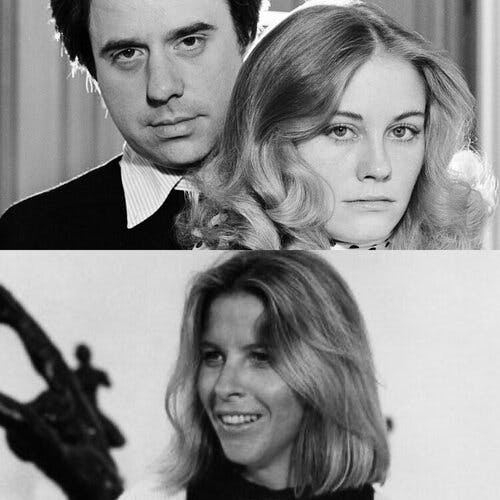
Last Picture Show Love Triangle (Polly Platt, The Invisible Woman, Episode 3)
At Polly’s urging, Peter decides to direct an adaptation of Larry McMurtry’s novel The Last Picture Show. Though credited only as the film’s “designer,” Polly is involved in every creative decision, including casting — and it’s with his pregnant-again wife’s enthusiasm that Bogdanovich casts 20-year-old model Cybill Shepherd as the film’s femme fatale. Though Polly believed she and Peter were “deliriously happy,” Bogdanovich and Shepherd fall in love on the set of the movie, and Polly has to make a decision: to save face and avoid personal humiliation by walking away from the production, or stay and fight for the creative baby that she feels ownership over.
To learn more about listener data and our privacy practices visit: https://www.audacyinc.com/privacy-policy
Learn more about your ad choices. Visit https://podcastchoices.com/adchoices
01:00:2309/06/2020
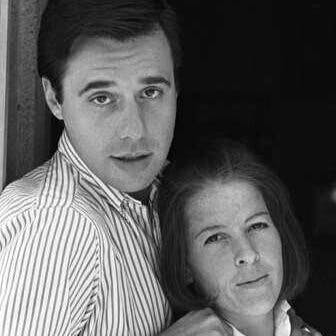
Peter Bogdanovich and the Woman Behind the Auteur (Polly Platt, The Invisible Woman, Episode 2)
After the death of her first husband and creative partner, Polly moves to New York, where she swiftly meets and falls in love with Peter Bogdanovich. Together Polly and Peter build a life around the obsessive consumption of Hollywood movies, with Polly acting as Peter’s Jill-of-all-trades support system as he first ingratiates himself with the previous two generations of Hollywood auteurs as a critic/historian, and then makes his way into making his own films. Together, Polly and Peter write and produce Targets, Bogdanovich’s first credited feature, and also collaborate on a documentary about the great director John Ford. By the time Polly gives birth to their first daughter, she believes she and Peter are an indivisible, equal creative partnership — regardless of how credit is distributed in Hollywood.
To learn more about listener data and our privacy practices visit: https://www.audacyinc.com/privacy-policy
Learn more about your ad choices. Visit https://podcastchoices.com/adchoices
01:08:2403/06/2020
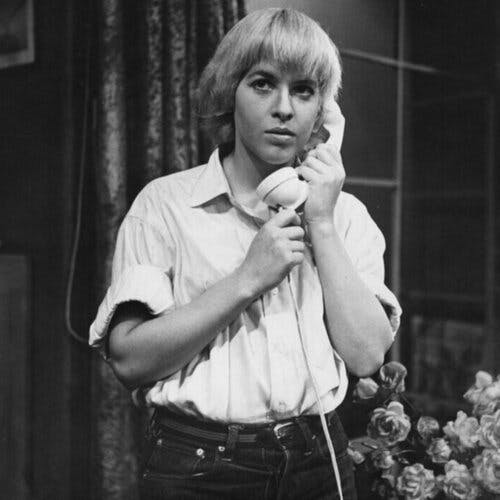
“It wasn’t sexism, then” (Polly Platt, The Invisible Woman, Episode 1)
We’ll begin with a look at how Polly Platt’s legacy was appraised when she died in 2011. Then we’ll go back in time to tell Polly’s story from the start, beginning with her Revolutionary Road-esque childhood in Europe and America as the neglected daughter of two alcoholics; to her years studying scenic design in environments in which women weren’t welcome; the secret pregnancy that halted her formal education, and the early marriage that took her West and cemented her desire to tell stories through design. Throughout, we’ll talk about how Platt’s experiences, as the product of an American military family of the 1950s—and the daughter of a mother who had been forced to abandon a career for motherhood––shaped her view of gender roles and relations, and her idea of what it meant to be the wife of a important man.
To learn more about listener data and our privacy practices visit: https://www.audacyinc.com/privacy-policy
Learn more about your ad choices. Visit https://podcastchoices.com/adchoices
01:09:1826/05/2020

Sneak Peek: Polly Platt, The Invisible Woman, Episode 1
Excited for the new season? We can hardly wait to share the untold story of Polly Platt, the secret weapon behind some of the most highly acclaimed films of the 1970s, '80s and '90s. This audio journey will feature interviews and intimate details about her trailblazing legacy and heartbreaking private life, including excerpts from her own unpublished memoirs dealing with her creative collaborations and relationship with her second husband, Oscar-nominated filmmaker Peter Bogdanovich. The new season premieres May 26. For now, please enjoy a taste of what's to come in this extended preview of episode 1. Actress Maggie Siff is featured as the voice of Polly Platt.
To learn more about listener data and our privacy practices visit: https://www.audacyinc.com/privacy-policy
Learn more about your ad choices. Visit https://podcastchoices.com/adchoices
23:4019/05/2020

Season Trailer: Polly Platt, The Invisible Woman
Polly Platt -- producer, writer and Oscar-nominated production designer -- lived an epic Hollywood life. And yet, if you know Platt’s name today, it’s probably because in 1970 her husband and creative collaborator Peter Bogdanovich had an affair with Cybill Shepherd while shooting the film that launched their careers, The Last Picture Show. But Platt was much more than a jilted wife: she was the secret, often invisible-to-the-public weapon behind some of the best films of the 1970s, '80s and '90s. Drawing on Platt’s unpublished memoir, as well as ample interviews and archival research, The Invisible Woman will tell Polly Platt’s incredible story from her perspective, for the first time. New episodes will begin releasing May 26.
To learn more about listener data and our privacy practices visit: https://www.audacyinc.com/privacy-policy
Learn more about your ad choices. Visit https://podcastchoices.com/adchoices
02:3305/05/2020

159: Vanessa Williams, Whitney Houston and Hollywood’s Misogynoir Problem (Make Me Over, Episode 8)
In 1983, Vanessa Williams became the first black woman to win Miss America. In 1984, a few weeks from the end of her reign, she was forced to step down when she found out Penthouse was going to publish unauthorized nude images of her in their magazine. Williams went on to have a successful singing career and star in movies, but her career trajectory tells more than the story of a black beauty icon who overcame obstacles to make it in Hollywood. It's a story that echoes the legacies of racism, colorism, tokenism and misogynoir (the misogyny experienced specifically by black women) in 20th century Hollywood and how, as a result, black women — from Williams to Whitney Houston — have had to display exceptional talent to make the case that their images are worth circulating and celebrating as beautiful. This episode was written and performed by Cassie da Costa, an entertainment writer for The Daily Beast. She lives in Ojai, California.
To learn more about listener data and our privacy practices visit: https://www.audacyinc.com/privacy-policy
Learn more about your ad choices. Visit https://podcastchoices.com/adchoices
41:3510/03/2020

158: The Hemingway Curse? Mariel and Margaux (Make Me Over, Episode 7)
A close look at the parallel lives of Margaux and Mariel Hemingway, sisters born with a world-famous last name that stood for both genius and self-destruction. Both rose to fame in the 1970s, Margaux as a supermodel and Mariel as an actress, and then both struggled with various demons. But while Margaux followed her grandfather's fate, Mariel confronted the family's dark legacy and reinvented herself as a mental health and wellness advocate. This episode was written and performed by Michael Schulman, a writer at The New Yorker and the author of "Her Again: Becoming Meryl Streep," a New York Times bestseller. His work has also appeared in Vanity Fair, the New York Times and other publications.
To learn more about listener data and our privacy practices visit: https://www.audacyinc.com/privacy-policy
Learn more about your ad choices. Visit https://podcastchoices.com/adchoices
48:4703/03/2020

157: Cass Elliot, Carnie Wilson and Fat-Shaming in Rock and Pop (Make Me Over, Episode 6)
Cass Elliot didn’t die eating a ham sandwich. But the lasting power of that urban legend speaks to a far darker story. Elliot possessed one of the most influential voices of the 1960s. However, while her big break with The Mamas and The Papas and meteoric career changed the LA music scene forever, it also entrapped Elliot in a cycle of fat-shaming, sending her spiraling into catastrophic weight-loss regimens. In this episode, we’ll talk about the music industry’s complicated relationship with weight, how crash dieting likely led to the untimely death of this music legend, and the true legacy of Elliot in pop culture. This episode was written and performed by Lexi Pandell, a writer from Oakland, California. Her work has been published by The Atlantic, the New York Times, WIRED, The New Republic, Condé Nast Traveler, GQ, Playboy and many others.
To learn more about listener data and our privacy practices visit: https://www.audacyinc.com/privacy-policy
Learn more about your ad choices. Visit https://podcastchoices.com/adchoices
48:0525/02/2020
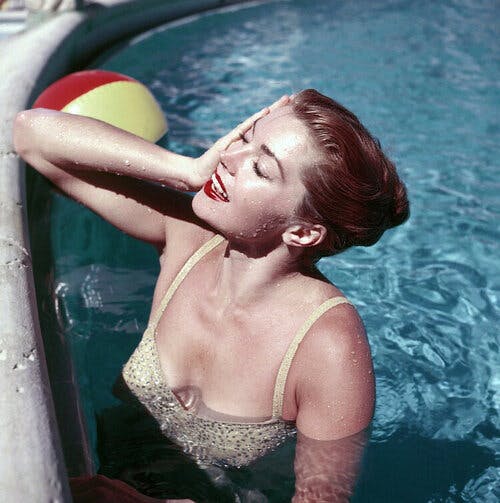
156: Esther Williams and the Birth of Waterproof Makeup (Make Me Over, Episode 5)
Esther Williams single-handedly helped popularize the pastime of swimming — first as the star swimmer of the San Francisco production of Billy Rose's Aquacade, and then as the star of Hollywood films like Bathing Beauties and Million Dollar Mermaid. Williams’s stardom — and the necessity to maintain her image as a grinning glamour girl, even while submerged underwater — led to the creation of several waterproof products and swimwear innovations, from waterproof foundation and eyeliner to bathing cap couture. Despite two decades of sustained celebrity and brand power, Williams eventually struggled to maintain the pristine bathing beauty facade. She lost her MGM contract in the 1960s and had to pay millions to the studio in damages. On her way down, she slapped her name on swimming pools and exercise videos, stumbled through four unhappy marriages and started to experiment with LSD for her depression. Drawing on previously untapped resources, Rachel Syme will tell the story of Williams' rise and fall, and the innovations in aqua-beauty she inspired, while also analyzing why we want to be waterproof, why we want to be so invulnerable to the elements and why putting swimming on-screen led to pressures for women to look put-together, even when sopping wet. This episode was written and performed by Rachel Syme, a writer, reporter and cultural critic living in New York City. She writes a regular column for The New Yorker on fashion and beauty. She is also a regular contributor to The New York Times Magazine, GQ, Vanity Fair and Esquire. She often writes about the complex intersection between fame, glamour, beauty and feminism.
To learn more about listener data and our privacy practices visit: https://www.audacyinc.com/privacy-policy
Learn more about your ad choices. Visit https://podcastchoices.com/adchoices
46:0018/02/2020

155: Passing for White: Merle Oberon (Make Me Over, Episode 4)
In 1935, Merle Oberon became the first biracial actress to be nominated for a Best Actress Oscar, an incredible achievement in then-segregated Hollywood -- except that nobody in Hollywood knew Oberon was biracial. Born in Bombay into abject poverty in 1911, Oberon's fate seemed sealed in her racist colonial society. But a series of events, lies, men and an obsession with controlling her own image -- even if it meant bleaching her own skin -- changed Oberon's path forever. This episode was written and performed by Halley Bondy, a writer and journalist whose work has appeared on NBC, The Outline, Eater NY, Paste Magazine, Scary Mommy, Bustle, Vice and more. She's an author of five young adult books plus a handful of plays and is a writer / producer for the podcast "Masters of Scale." She lives in Brooklyn with husband / cheerleader Tim and her amazing toddler Robin.
To learn more about listener data and our privacy practices visit: https://www.audacyinc.com/privacy-policy
Learn more about your ad choices. Visit https://podcastchoices.com/adchoices
49:2111/02/2020

154: Marie Dressler, the First Female Star to Conquer Hollywood’s Ageism (Make Me Over, Episode 3)
In 1933, the biggest female star in American movies wasn’t a sex symbol like Greta Garbo, Jean Harlow or Marlene Dietrich. It was Marie Dressler — homely, overweight and over 60 years old. The public loved nothing better than to see their Marie play a drunk or a dowager and steal every scene from the glamour girls less than half her age. Dressler had been down and out for most of the 1920s. That she became a star at age 60 was an achievement that told Depression-battered audiences it was never too late. Today we take a look at the life of Marie Dressler; from Broadway, to the picket lines, to the breadline and to the Oscar podium, she proved that in some cases, Hollywood stardom can be more than skin-deep. This episode was written and performed by Farran Smith Nehme, who has written about film and film history for the New York Post, the Wall Street Journal, Barron’s, the New York Times, Film Comment, Sight & Sound, Criterion and at her blog, Self-Styled Siren. Her novel, Missing Reels, was published in 2014.
To learn more about listener data and our privacy practices visit: https://www.audacyinc.com/privacy-policy
Learn more about your ad choices. Visit https://podcastchoices.com/adchoices
47:3704/02/2020

153: Hollywood’s First Weight Loss Guru: Madame Sylvia (Make Me Over, Episode 2)
Glamorous and shrewd, Sylvia of Hollywood became the movie industry’s first weight-loss guru during the end of the silent era. An immigrant of mysterious origin, she would cannily market herself to clients like Gloria Swanson, who she promised to ‘slenderize, refine, reduce and squeeze’ into shape. But her taste for gossip and publicity would become her downfall in the 1930s when she published a catty tell-all memoir about her star clients. This episode was written and performed by Christina Newland, an award-winning journalist on film, pop culture and boxing at Sight & Sound Magazine, Little White Lies, VICE, Hazlitt, The Ringer and others. She loves 70s Americana, boxing flicks, fashion and old Hollywood lore. She was born in New York and lives in Nottingham, England.
To learn more about listener data and our privacy practices visit: https://www.audacyinc.com/privacy-policy
Learn more about your ad choices. Visit https://podcastchoices.com/adchoices
43:1228/01/2020
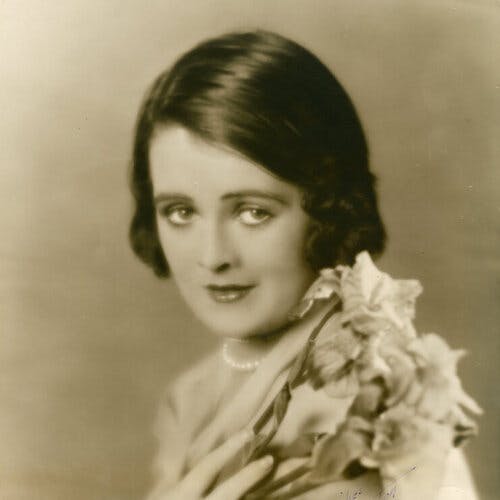
152: Hollywood’s First Weight Loss Surgery: Molly O’Day (Make Me Over, Episode 1)
At the age of 18, actress Molly O’Day’s career showed great promise — the only thing holding her back was a bit of pubescent pudge. When diets failed, she became the guinea pig of Hollywood's first highly-publicized weight loss surgery. This was in 1929, and the procedure was, as one fan magazine described it "dangerous... and all in vain." What lead Molly to such desperation? And what happened after the surgery to make her former lover, actor George Raft, declare it “ruined her health, her career and damn near killed her?"
To learn more about listener data and our privacy practices visit: https://www.audacyinc.com/privacy-policy
Learn more about your ad choices. Visit https://podcastchoices.com/adchoices
38:4121/01/2020

Sneak Peek: Make Me Over
In this companion series to You Must Remember This, Karina Longworth will introduce eight stories about Hollywood’s intersection with the beauty industry. Told by writers and reporters known for their work at The New Yorker, the New York Times and other publications, Make Me Over will explore a range of topics, including Hollywood’s first weight loss surgery, the story of the star whose unique skills led to the development of waterproof mascara, black beauty in the 1990s and much more.
To learn more about listener data and our privacy practices visit: https://www.audacyinc.com/privacy-policy
Learn more about your ad choices. Visit https://podcastchoices.com/adchoices
02:3814/01/2020

151: Splash Mountain (Six Degrees of Song of the South, Episode 6)
After two more successful theatrical releases, in 1980 and 1986, Disney decided to put Song of the South in the “Disney Vault” and never released it on home video or theatrically in the US ever again. And yet, at the same time, the company was developing a theme park ride around Song of the South’s characters and its most memorable song -- but without Uncle Remus, or any signifiers of the complicated racial and historical dynamics the film, however clumsily portrayed.
To learn more about listener data and our privacy practices visit: https://www.audacyinc.com/privacy-policy
Learn more about your ad choices. Visit https://podcastchoices.com/adchoices
53:2026/11/2019

150: Blaxploitation and the White Backlash (Six Degrees of Song of the South, Episode 5)
Song of the South’s most successful re-release came in 1972 at a time when Hollywood was dealing with race by making two very different kinds of movies: Blaxploitation films, which gave black audiences a chance to see black characters triumph against white authority figures; and movies like Dirty Harry, which were emblematic of a concurrent cultural and political shift away from the Civil Rights Movement and toward Reagan-style Republicanism.
To learn more about listener data and our privacy practices visit: https://www.audacyinc.com/privacy-policy
Learn more about your ad choices. Visit https://podcastchoices.com/adchoices
52:2119/11/2019

149: White Allies and the Blacklist: Maurice Rapf (Six Degrees of Song of the South, Episode 4)
Concerned that his movie about a former slave devoting his life to a white child’s emotional needs might be perceived as racist, Walt Disney hired known Communist Maurice Rapf to rewrite Song of the South. Rapf, the son of an MGM exec, was radicalized as a college student, and shortly after Song of the South was released, he was blacklisted. Today we’ll discuss Rapf’s life and career, and talk about how white leftists in Hollywood tried to subvert the industry’s racial status quo -- and how their mission to “make movies less bad” led to their own persecution. This episode is sponsored by Parcast - Mythology (www.parcast.com/MYTHOLOGY).
To learn more about listener data and our privacy practices visit: https://www.audacyinc.com/privacy-policy
Learn more about your ad choices. Visit https://podcastchoices.com/adchoices
52:0312/11/2019

148: “Zip-a-Dee-Doo-Dah,” Minstrels in Hollywood and The Oscars (Six Degrees of Song of the South, Episode 3)
Song of the South’s most famous element is “Zip-a-Dee-Doo-Dah,” a song written for the movie but reminiscent of a racist standard popularized in blackface minstrel shows of the 1830s. Today we’ll explore this song and the other ways in which minstrel imagery and tropes made their way into Song of the South and other animated and live action films of the first half of the 20th century. And, we'll talk about how all of this is related to Walt Disney's push to net Song of the South Oscars.
To learn more about listener data and our privacy practices visit: https://www.audacyinc.com/privacy-policy
Learn more about your ad choices. Visit https://podcastchoices.com/adchoices
54:4605/11/2019

147: Hattie McDaniel (Six Degrees of Song of the South, Episode 2)
Song of the South co-stars Hattie McDaniel, the first black performer to win an Oscar (for her supporting role as “Mammy” in Gone with the Wind). By the time Song of the South was released, McDaniel was the subject of much criticism in the black community for propagating outdated stereotypes in her roles. But McDaniel actually began her career subverting those same stereotypes, first in black minstrel shows and then in Hollywood movies.
To learn more about listener data and our privacy practices visit: https://www.audacyinc.com/privacy-policy
Learn more about your ad choices. Visit https://podcastchoices.com/adchoices
01:00:4429/10/2019

146: Disney’s Most Controversial Film (Six Degrees of Song of the South, Episode 1)
Disney Plus is launching with the stated intention of streaming the entire Disney library... except for "Song of the South," a 1946 animation/live-action hybrid film set on a post-Civil War plantation. It was theatrically re-released as recently as 1986, and served as the basis for the ride Splash Mountain, but has never been available in the US on home video. What is "Song of the South?" Why did Disney make it and why have they held the actual film from release, while finding other ways to profit off of it?
To learn more about listener data and our privacy practices visit: https://www.audacyinc.com/privacy-policy
Learn more about your ad choices. Visit https://podcastchoices.com/adchoices
01:00:5622/10/2019

Sneak Peek: Six Degrees of "Song of the South"
This season, we explore the most controversial film in the history of Disney Animation.
With the launch of Disney Plus, the company's entire library could be made available for streaming. The one film promised to remain locked away is "Song of the South," the 1946 animation/live-action hybrid set on a post-Civil War plantation.
What is "Song of the South?" Why did Disney make it even amidst protests? And why have they held the actual film from release for the past thirty-plus years, while finding other ways to profit off of it?
Join us, won’t you? As we uncover this hidden film in the Disney vault. New episodes of “You Must Remember This” will be released every Tuesday.
To learn more about listener data and our privacy practices visit: https://www.audacyinc.com/privacy-policy
Learn more about your ad choices. Visit https://podcastchoices.com/adchoices
04:2316/10/2019
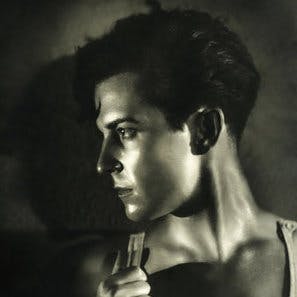
145: Ramon Novarro (Fake News: Fact Checking Hollywood Babylon Episode 19)
Ramon Novarro was a Mexican actor and singer whose stardom at MGM in the 1920s and 30s was not impeded by his offscreen life as a gay man. In Hollywood Babylon, Anger focuses only on Novarro’s grisly murder in 1968 -- which outed Novarro to a public that had largely forgotten him--and needlessly embellishes a crime scene that was already pretty horrible. Today, in our final episode of Fact-Checking Hollywood Babylon, we will explore the life which Anger left out of Hollywood Babylon, and correct that book’s version of Novarro’s death.
To learn more about listener data and our privacy practices visit: https://www.audacyinc.com/privacy-policy
Learn more about your ad choices. Visit https://podcastchoices.com/adchoices
55:4629/01/2019
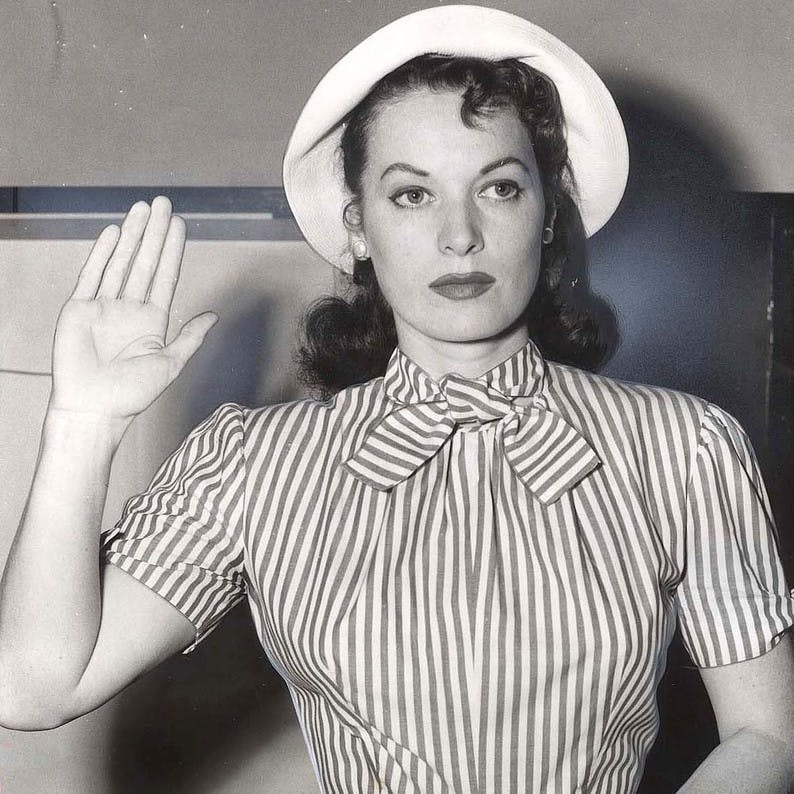
144: The Trials of Confidential Magazine: Maureen O'Hara (Fake News: Fact Checking Hollywood Babylon Episode 18)
In part two of our two-parter on the demise of the biggest and most pernicious tabloid of the 1950s, we’ll explore what happened after the magazine’s claim that redheaded star Maureen O’Hara was caught having sex at Grauman’s Chinese Theater. O’Hara positioned herself the “Joan of Arc” of Hollywood, single-handedly defending a cowardly industry against the existential threat posed by Confidential. As we’ll see, this is one story where the Kenneth Anger version is more credible than the version related by one of the subjects.
To learn more about listener data and our privacy practices visit: https://www.audacyinc.com/privacy-policy
Learn more about your ad choices. Visit https://podcastchoices.com/adchoices
39:0722/01/2019
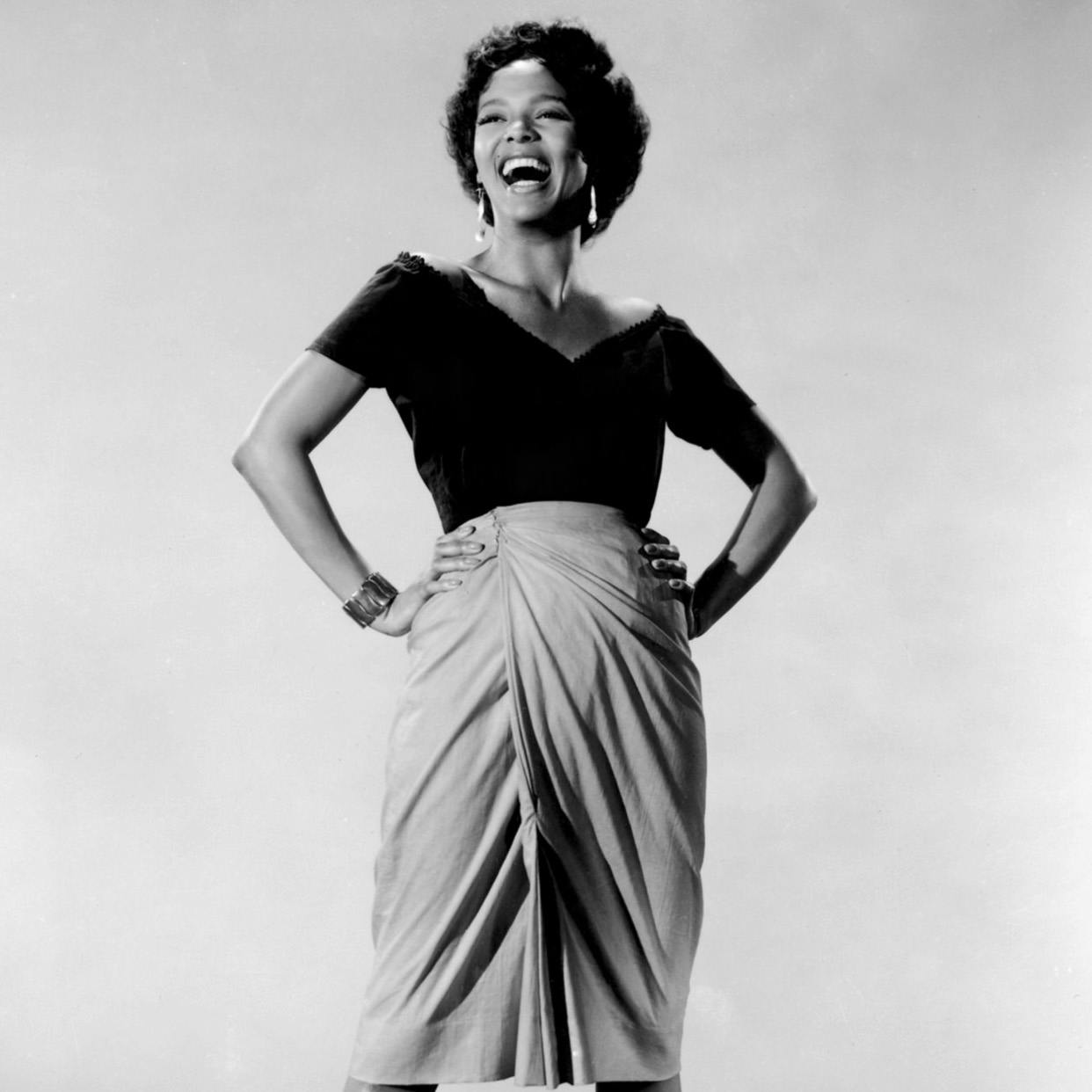
143: The Trials of Confidential Magazine: Dorothy Dandridge (Fake News: Fact Checking Hollywood Babylon Episode 17)
Over two episodes, we will explore Hollywood Babylon’s coverage of Confidential Magazine and the two celebrities who testified against the scandal rag in the 1957 trial that helped end what Anger rightfully refers to as its “reign of terror.” We’ll begin with Dorothy Dandridge, the first black actress to be nominated for a Best Actress Oscar. Dandridge’s testimony against Confidential reveals the publication’s racist agenda, as well as the double standards that governed her real private and public lives.
To learn more about listener data and our privacy practices visit: https://www.audacyinc.com/privacy-policy
Learn more about your ad choices. Visit https://podcastchoices.com/adchoices
49:4715/01/2019
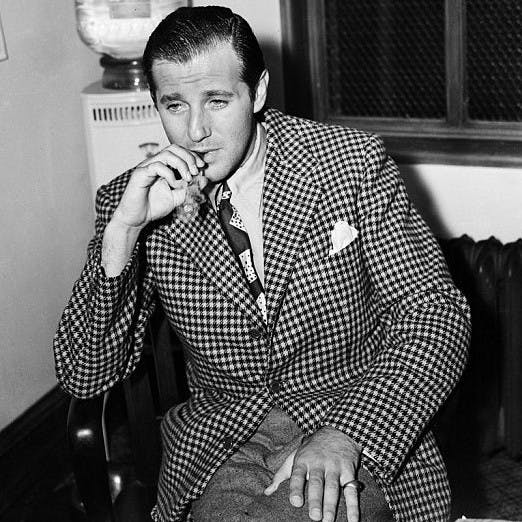
142: Bugsy Siegel (Fake News: Fact Checking Hollywood Babylon Episode 16)
Jewish gangster Benjamin “Bugsy” Siegel is frequently credited with corrupting Hollywood’s unions and “inventing” Las Vegas. Siegel did have movie star friends, but the true story of his involvement with the Flamingo casino is also the story of a much bigger movieland player: Hollywood Reporter founder/publisher/columnist Billy Wilkerson.
To learn more about listener data and our privacy practices visit: https://www.audacyinc.com/privacy-policy
Learn more about your ad choices. Visit https://podcastchoices.com/adchoices
42:0908/01/2019

141: Marlene Dietrich, Claudette Colbert, and the “sewing circle” (Fake News: Fact Checking Hollywood Babylon Episode 15)
The bisexuality of Marlene Dietrich was not exactly a secret in 1930s Hollywood -- in fact, her ambiguous sexuality was part of her on-screen brand. But there is some debate as to who Dietrich counted among her lovers, and which of her fellow stars participated in what has been called the “sewing circle” of female intimacy. Anger alleges that Dietrich had a “passionate affair” with Claudette Colbert, an Oscar-winning actress with an extremely heteronormative persona. We’ll explore what was going on in Dietrich’s life and career around the time when this affair could have taken place, and then delve into Colbert’s image as a very different kind of on-screen sex symbol, and her complicated off-screen personal life.
To learn more about listener data and our privacy practices visit: https://www.audacyinc.com/privacy-policy
Learn more about your ad choices. Visit https://podcastchoices.com/adchoices
47:3125/12/2018

140: Lupe Velez (Fake News: Fact Checking Hollywood Babylon Episode 14)
Mexican actress Lupe Velez was the victim of one of Anger’s cruelest invented stories. His fabrication of her manner of death lays bare a vicious racism in addition to Hollywood Babylon’s usual sexism. Today we will sort out the fact of Velez’s life from Anger’s fiction and consider the star of the Mexican Spitfire series as a comedienne ahead of her time.
To learn more about listener data and our privacy practices visit: https://www.audacyinc.com/privacy-policy
Learn more about your ad choices. Visit https://podcastchoices.com/adchoices
52:2118/12/2018
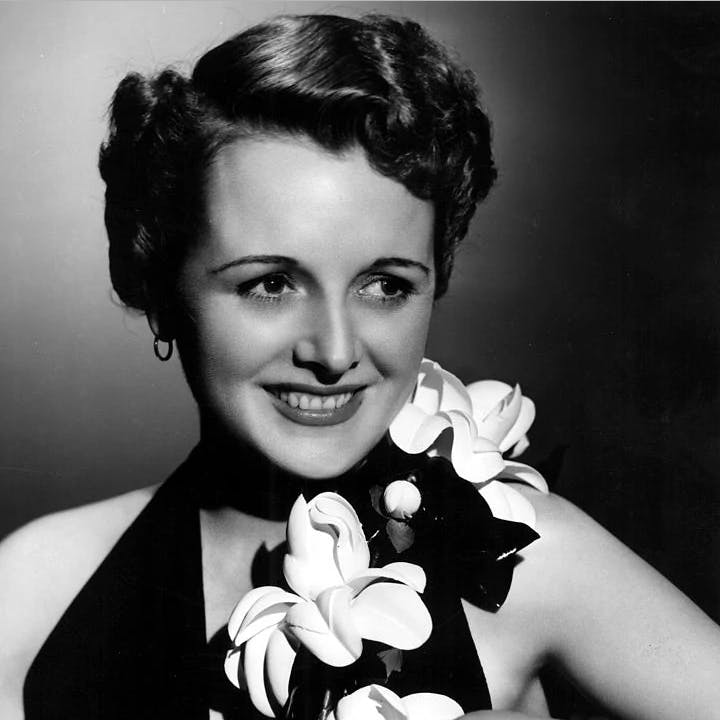
139: Mary Astor's Diary (Fake News: Fact Checking Hollywood Babylon Episode 13)
In 1936, actress Mary Astor (who had not yet made her most famous film, The Maltese Falcon) and her husband went to court to fight for custody of their four year-old daughter. The trail made international news thanks to both sides’ use of Astor’s diary, in which she had recorded details of her affair with playwright George S. Kaufman. How much did Astor truly reveal in her diary, and what role did the scandal play in her life and career?
To learn more about listener data and our privacy practices visit: https://www.audacyinc.com/privacy-policy
Learn more about your ad choices. Visit https://podcastchoices.com/adchoices
56:3911/12/2018
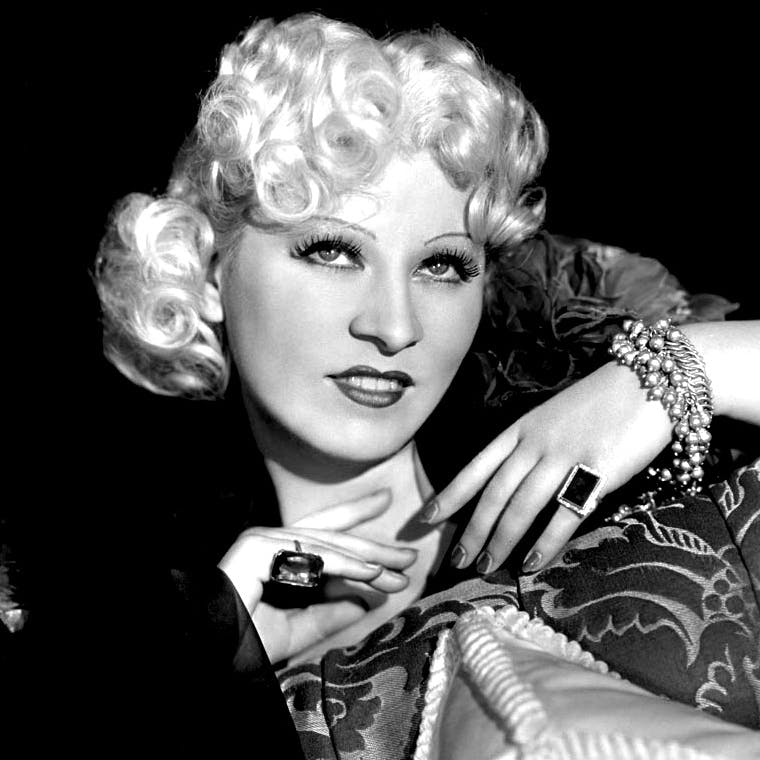
138: Mae West (Fake News: Fact Checking Hollywood Babylon Episode 12)
Mae West was the biggest new star in Hollywood in 1933, thanks to two hit films she co-wrote and starred in as a sexually implicit, wisecracking broad who romanced a young Cary Grant. In Hollywood Babylon, Anger credits West’s abrupt decline in movies to a coordinated conspiracy organized by William Randolph Hearst and carried out by the Hays Office. Today we’ll explore West’s background, her history of pushing the censors past the limits of legality, and the truth of her lightning-fast rise in Hollywood and somewhat slower descent back to earth.
To learn more about listener data and our privacy practices visit: https://www.audacyinc.com/privacy-policy
Learn more about your ad choices. Visit https://podcastchoices.com/adchoices
56:1204/12/2018

137: Gina Lollobrigida (The Seduced, Episode 6)
This Italian pin-up, along with Sophia Loren and Brigitte Bardot, was emblematic of a brand of post-war European sexuality that America happily imported. But the Hollywood career of “La Lollo” was delayed, thanks to Howard Hughes, whose obsession with Lollobrigida led him to keep her virtually imprisoned in a Los Angeles hotel and sign her to a contract that essentially made it impossible for her to work for any other U.S. producer.
To learn more about listener data and our privacy practices visit: https://www.audacyinc.com/privacy-policy
Learn more about your ad choices. Visit https://podcastchoices.com/adchoices
45:1120/11/2018

136: Yvonne De Carlo
The future Lily Munster became a star when producer Walter Wanger cast her in Salome, Where She Danced (1945). A curvaceous brunette in her early 20s, De Carlo fit the mold of Howard Hughes’ mid-century girlfriends to a T. But that relationship would be brief, and De Carlo would go on to distinguish herself in movies, television, and as a star of the original production of Stephen Sondheim’s Follies.
To learn more about listener data and our privacy practices visit: https://www.audacyinc.com/privacy-policy
Learn more about your ad choices. Visit https://podcastchoices.com/adchoices
46:4413/11/2018

135: Linda Darnell (The Seduced, Episode 4)
A stunning brunette sex symbol married to cinematographer Pev Marley, Darnell thought her affair with Howard Hughes would result in marriage to the aviator. But after Hughes’ near-fatal 1946 plane crash, Marley tried to make a deal to sell his wife to the tycoon--which was not what Darnell wanted. This was not the low point of a life that ended in incredible tragedy, amid a career that, to this day, has not been given the acclaim it deserves.
To learn more about listener data and our privacy practices visit: https://www.audacyinc.com/privacy-policy
Learn more about your ad choices. Visit https://podcastchoices.com/adchoices
48:2906/11/2018
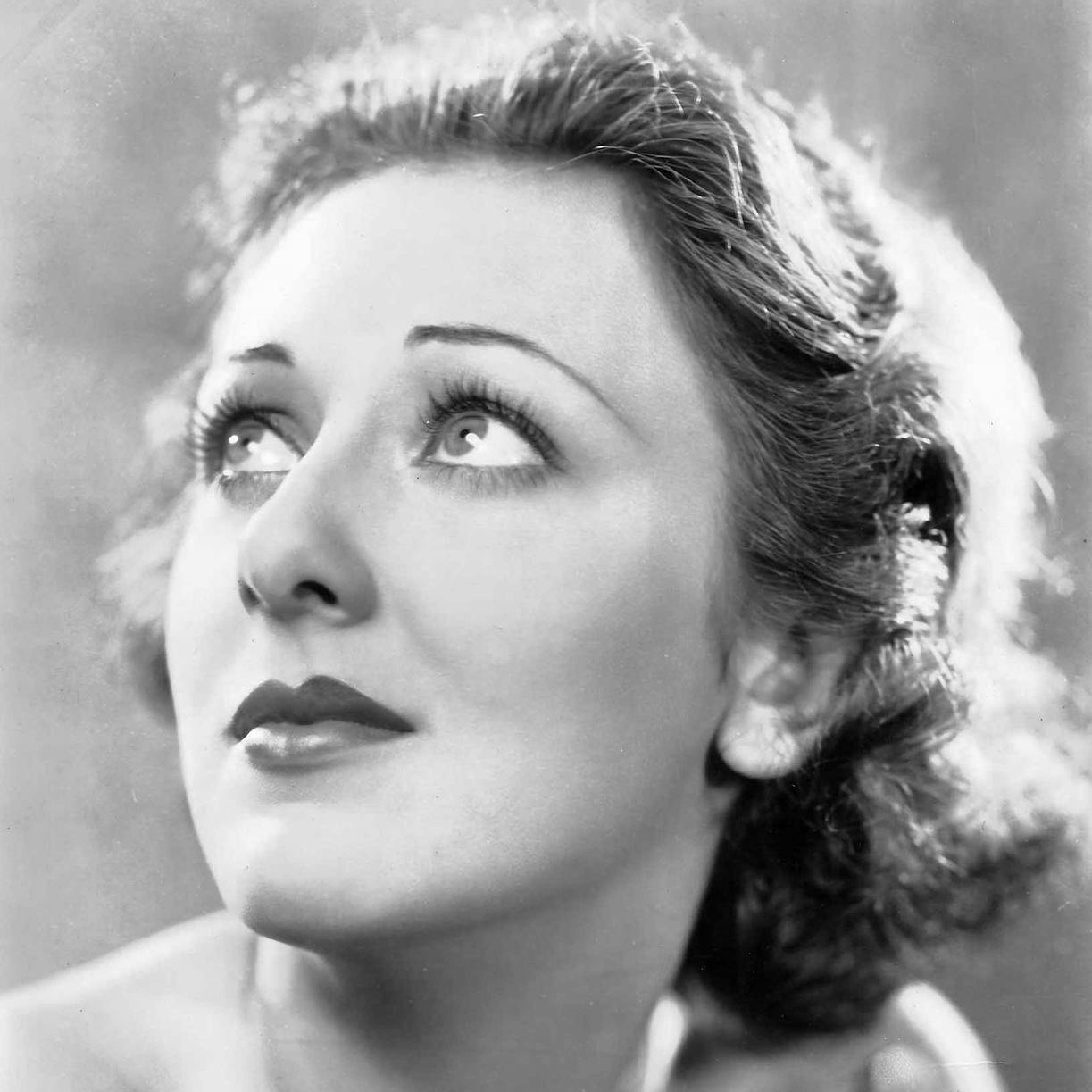
134: Ann Dvorak (The Seduced, Episode 3)
The child of a silent film actress, Dvorak was so determined to be a star that at first, she wouldn’t take no for an answer. Her big break came when she was cast in Howard Hughes’s production of Scarface. But Hughes would sell her contract to Warner Brothers, and when Ann later accused Hughes of having “sold [her] down the river,” she would swiftly suffer the consequences of going up against Hughes in the press when his mastery over the medium of publicity was at its peak.
To learn more about listener data and our privacy practices visit: https://www.audacyinc.com/privacy-policy
Learn more about your ad choices. Visit https://podcastchoices.com/adchoices
51:0930/10/2018
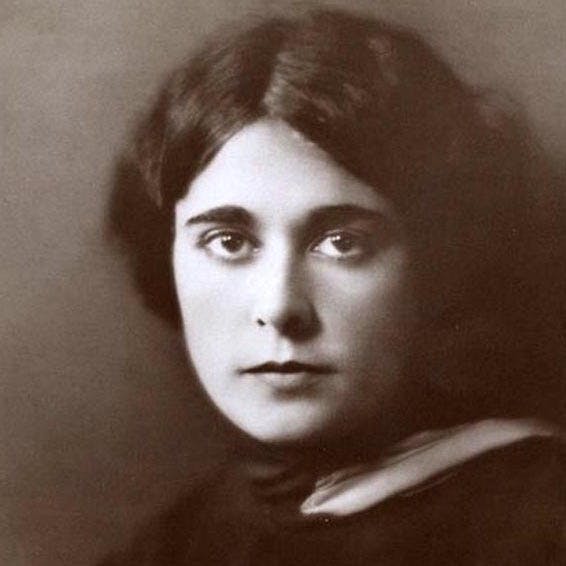
133: The Bacchanal of 1920s Hollywood, via Frederica Sagor Maas (The Seduced Episode 2)
Seduction begins at an MGM sponsored orgy at the Ambassador Hotel, as told through the eyes of one of the attendees, a young female screenwriter named Frederica Sagor. Sagor would go on to pen one of the frankest memoirs of 1920s Hollywood, revealing the systematic sexual exploitation of women in the film industry by men like Marshall Neilan--one of Howard Hughes’ early mentors. Frederica’s story also details how tough it was for a woman to hold on to power behind the scenes in the film industry as Hollywood evolved.
To learn more about listener data and our privacy practices visit: https://www.audacyinc.com/privacy-policy
Learn more about your ad choices. Visit https://podcastchoices.com/adchoices
42:0223/10/2018
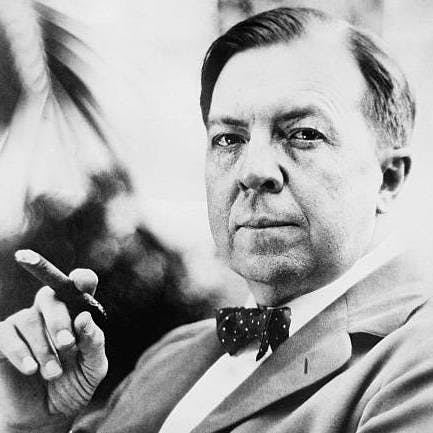
Rupert Hughes's Women (The Seduced, Episode 1)
In the new book Seduction: Sex, Lies and Stardom in Howard Hughes’s Hollywood, Karina Longworth explores the lives and careers of over a dozen actresses who were involved, professionally and/or personally, with Howard Hughes. Inspired by the You Must Remember This episodes on “The Many Loves of Howard Hughes” produced in 2014-2015, the book goes in depth, with much new research, into the stories of stars like Jean Harlow, Ginger Rogers, Ida Lupino, Jane Russell and many more. In this short series of You Must Remember This, we’ll discuss some of the women who serve as peripheral characters in Seduction: four actresses who were briefly seduced by Hughes, either professionally or romantically, and one writer whose travails in Hollywood during the Hughes era speak to the conflicted female experience behind the camera in 20th century Hollywood. We’ll begin the season by talking about the complicated, intermingled romantic and professional relationships of Howard’s uncle, Rupert Hughes, who paved the way for his nephew as a Hollywood figure known for his colorful history with women.
To learn more about listener data and our privacy practices visit: https://www.audacyinc.com/privacy-policy
Learn more about your ad choices. Visit https://podcastchoices.com/adchoices
51:1316/10/2018





